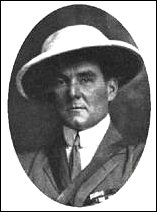Rob Walker, the NYT's consumer guy, has a lengthy and insightful piece in yesterday's New York Times Magazine on the use of volunteers for "word of mouth marketing." Focusing on the activities of BzzAgent, a Boston-based firm that uses thousands of young people to "place" product endorsements via casual contact with strangers, friends, and staged public events, Walker delves into the practical and ethical debate surrounding the use of marketing agents whose activities are unknown (i.e., they are being remunerated or compensated for pushing products by firms) to individuals who take them to be someone other than who they are.
In the follow-up forum on the NYI site, one participant who self-identified as a BzzAgent (emodwarf), argued the following:
I think that trust is what separates word of mouth, or at least open and honest word of mouth, from other forms of advertising and marketing. If you're my sister, friend, co-worker, whatever, there is a level of trust inherent to the relationship. And that trust is exactly why BzzAgent succeeds and doesn't turn my stomach. You trust the people in your life. You trust them not to steal from you, kill you when you're sleeping, or tell everyone about the time you got drunk and made out with Debbie from accounting.
We also trust them not to profit from us. While reading the article and forum, I couldn't help but think of a couple key anthropological concepts that seemed to jump out of the pages.
The first is the notion of role in a culture: the behavior, language, and mental frames one uses to act "appropriately" in a given setting as a participant in a social group. Those who have read Erving Goffman and Ralph Linton will be on familiar territory, and even if you haven't, the concept is readily understandable.
At the family dinner table I might act "fatherly" to my son, especially so if he is behaving innapropriately (stern warnings, or perhaps a spanking), or if I were to be employed as a server in a restaurant there are certain behaviors which are expected both of me, and the customer at the table (a certain social distance between the participants, topics of conversation which are allowed and not allowed at the table, etc). On the other hand, if I were to behave like a customer in a fine dining restaurant at home, divorce would be imminent because my "role" is to act like a husband , not a complaining customer. Similarly, if I am purchasing an item at a counter in a store, I expect the staff to try to sell it to me. We are both in "roles" that we understand is part of a process of negotiating a sale. However, if I were to try to "sell" a product around the Thanksgiving table for which I am getting paid, I am conflating those cultural roles of "salesman" and "non-commerical friend or kin," and, in a sense, commingling roles which are largely seen as "biased" with "non-biased."
Now the article points out that BzzAgents can identify themselves as such, if they wish, but it tends to dampen their effectiveness in placing products. In part this stems from a function of social distance and the nature of reciprocity - courtesy of Marshall Sahlins. If I am in financial need, I could probably ask for money from close family members again and again without need to immediately pay them back. Essentially, the relationship we have regarding the trading of favors and material items is one of generalized reciprocity, there is no accounting measure of who is up, and who is down. On the other hand, those who I know little would probably not loan me money, or if they did it would be under limited circumstances (small amounts, legal terms). Our relationship is then one of greater social distance, and we trade favors via balanced reciprocity. If we become closer over time, that social distance is reduced and we could move into a more generalized reciprocal relationship. I would not expect them to count all the favors we exchange, nor would I expect them to profit from our relationship.
Now why the boring economic anthro stuff? It's because BzzAgents are using their social roles as consumers to place products in the hands of people who think of them as "unbiased" (untrue), because they attend the same bar, wear the same clothes, project the same lifestyle, attend the same events. They are members of a certain social group with affinities towards their fellow members, which means that opinions they offer are being done so in a generalized manner (i.e., no balanced, or quid pro quo) with no overt sense of entitlement or remuneration for such activities. Buzz marketing works when these cultural concepts are tweaked for product placement, in a sense, violating the very trust that emodwarf claims makes it so different from traditional forms of marketing.
Subscribe to:
Post Comments (Atom)

No comments:
Post a Comment